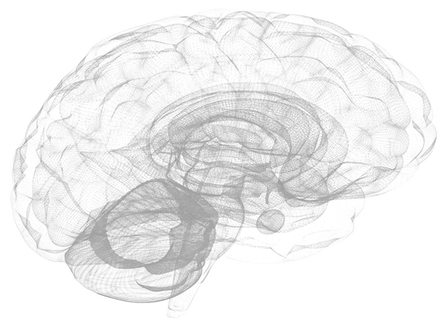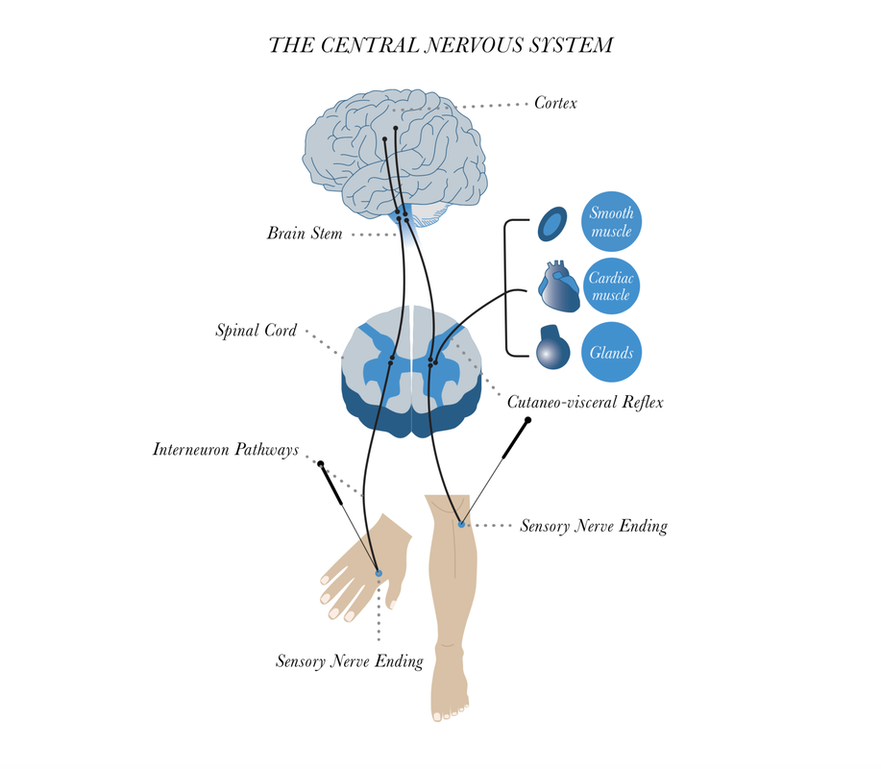Anxiety is a complex, pervasive condition with symptoms and physical manifestations varying considerably: from shortness of breath and variations in heart rate, to full blown and debilitating panic attacks, headaches, pain and insomnia.
Acupuncture is one of the more popular non-conventional therapies used for anxiety disorders, as it has very few side effects and is safe for a broad spectrum of patients.
Acupuncture For Anxiety - How it Works?
This therapy has been used for centuries in Traditional East Asian medicine, and is now being extensively studied in Western medicine as the body of research continues to grow. Acupuncture treatments focus on calming the mind, refreshing the brain and opening the orifices, soothing the liver, nourishing the heart and strengthening the spleen. Stress, which usually manifest with or is the root cause of anxiety, blocks the Qi (vital energy) leading body to the physical or emotional pain. The blockage of Qi initially impacts the liver organ system and then irritability, frustration, anger, depression, disturbed digestion, hormonal disorders, and blood pressure issues arise and further lead to other serious medical conditions over a longer time period
Acupuncture involves the application of thin metal needles into the skin, fascia, and muscles. Traditionally, acupuncture has been explained to work by stimulating the movement of Qi, or the body’s energy throughout the body. Contemporary research in anatomy and neurobiology of acupuncture is discovering how acupuncture works physiologically. Human and animal autopsies demonstrate that acupuncture points are more dense in free nerve endings, encapsulated cutaneous receptors, and connective tissue. They also have a higher number of myelinated nerves and autonomic nerve fibers compared to non-acupuncture points, which can result in both local and systemic effects. The stimulation of these densely innervated areas results in the release of neuro-peptides and neuro-transmitters, causing the following anxiolytic effects:
1. Stimulates the parasympathetic nervous system
Some acupuncture point locations have increased branches of somatic nerves. Acupuncture needle stimulation will send signals to the brain, which then project onto parasympathetic nerves. The systemic result of this includes a decrease in the “fight or flight” response, changes in heart rate, and alterations in anxiety levels.
2. Alters serotonin and other neuroendocrine hormones
Changes in serotonin and neuroendocrine hormones are one of the leading theories to the mechanism behind anxiety. There appears to be a higher level of interaction between the hypothalamic-pituitary-adrenal axis in patients with anxiety disorders, along with increased adrenocorticotropic hormone (ACTH), cortisol, and serotonin. Acupuncture in patients with generalized anxiety disorder has been shown to lower anxiety scores, as well as plasma ACTH and platelet serotonin compared to placebo.
3. Analgesic effect
Acupuncture needles can stimulate mast cells in the local area to release endorphins and substance-p, which modulate pain. This could especially be useful in patients who have pain comorbidities associated with their anxiety.
All of these acupuncture mechanisms have a direct effect on reducing anxiety.
Cognitive behavioural therapy (CBT) and mindfulness-based CBT are two other popular and effective forms of conventional treatment for anxiety and may be prescribed as standalone therapies, or in combination with acupuncture.
Pharmacological approaches: There are several medications that are prescribed for anxiety, including benzodiazepines (alprazolam), selective-serotonin re-uptake inhibitors (SSRIs) such as paroxetine, and tricyclic antidepressants (imipramine), either singularly or in combination. According to recent research, around 50% of patients treated pharmacologically for anxiety have an ‘inadequate response, meaning that their symptoms are not alleviated to clinically significant levels or that the patient experiences adverse side effects such as drowsiness, mental slowing and anterograde amnesia (difficulty in forming new memories).
References:
Acupuncture is one of the more popular non-conventional therapies used for anxiety disorders, as it has very few side effects and is safe for a broad spectrum of patients.
Acupuncture For Anxiety - How it Works?
This therapy has been used for centuries in Traditional East Asian medicine, and is now being extensively studied in Western medicine as the body of research continues to grow. Acupuncture treatments focus on calming the mind, refreshing the brain and opening the orifices, soothing the liver, nourishing the heart and strengthening the spleen. Stress, which usually manifest with or is the root cause of anxiety, blocks the Qi (vital energy) leading body to the physical or emotional pain. The blockage of Qi initially impacts the liver organ system and then irritability, frustration, anger, depression, disturbed digestion, hormonal disorders, and blood pressure issues arise and further lead to other serious medical conditions over a longer time period
Acupuncture involves the application of thin metal needles into the skin, fascia, and muscles. Traditionally, acupuncture has been explained to work by stimulating the movement of Qi, or the body’s energy throughout the body. Contemporary research in anatomy and neurobiology of acupuncture is discovering how acupuncture works physiologically. Human and animal autopsies demonstrate that acupuncture points are more dense in free nerve endings, encapsulated cutaneous receptors, and connective tissue. They also have a higher number of myelinated nerves and autonomic nerve fibers compared to non-acupuncture points, which can result in both local and systemic effects. The stimulation of these densely innervated areas results in the release of neuro-peptides and neuro-transmitters, causing the following anxiolytic effects:
1. Stimulates the parasympathetic nervous system
Some acupuncture point locations have increased branches of somatic nerves. Acupuncture needle stimulation will send signals to the brain, which then project onto parasympathetic nerves. The systemic result of this includes a decrease in the “fight or flight” response, changes in heart rate, and alterations in anxiety levels.
2. Alters serotonin and other neuroendocrine hormones
Changes in serotonin and neuroendocrine hormones are one of the leading theories to the mechanism behind anxiety. There appears to be a higher level of interaction between the hypothalamic-pituitary-adrenal axis in patients with anxiety disorders, along with increased adrenocorticotropic hormone (ACTH), cortisol, and serotonin. Acupuncture in patients with generalized anxiety disorder has been shown to lower anxiety scores, as well as plasma ACTH and platelet serotonin compared to placebo.
3. Analgesic effect
Acupuncture needles can stimulate mast cells in the local area to release endorphins and substance-p, which modulate pain. This could especially be useful in patients who have pain comorbidities associated with their anxiety.
All of these acupuncture mechanisms have a direct effect on reducing anxiety.
Cognitive behavioural therapy (CBT) and mindfulness-based CBT are two other popular and effective forms of conventional treatment for anxiety and may be prescribed as standalone therapies, or in combination with acupuncture.
Pharmacological approaches: There are several medications that are prescribed for anxiety, including benzodiazepines (alprazolam), selective-serotonin re-uptake inhibitors (SSRIs) such as paroxetine, and tricyclic antidepressants (imipramine), either singularly or in combination. According to recent research, around 50% of patients treated pharmacologically for anxiety have an ‘inadequate response, meaning that their symptoms are not alleviated to clinically significant levels or that the patient experiences adverse side effects such as drowsiness, mental slowing and anterograde amnesia (difficulty in forming new memories).
References:
- Evidence based acupuncture. https://www.evidencebasedacupuncture.org/acupuncture-anxiety/
- McDonald J, Janz S. The Acupuncture Evidence Project: A Comparative Literature Review. Australian Acupuncture and Chinese Medicine Association Ltd. 2017.
- Bazzan AJ, Zabrecky G, Monti DA, Newberg AB. Current evidence regarding the management of mood and anxiety disorders using complementary and alternative medicine. Expert Rev Neurother. 2014;14:411- 23
- Goyata SL, Avelino CC, Santos SV, Souza Junior DI, Gurgel MD, Terra FS. Effects from acupuncture in treating anxiety: integrative review. Rev Bras Enferm. 2016 Jun;69(3):602-9
- Arvidsdotter, T., Marklund, B., & Taft, C. (2013). Effects of an integrative treatment, therapeutic acupuncture and conventional treatment in alleviating psychological distress in primary care patients–a pragmatic randomized controlled trial. BMC Complementary and Alternative Medicine, 13(1), 308. http://doi.org/10.1186/1472-6882-13-308
- Amorim, D., Amado, J., Brito, I., Fiuza, S. M., Clinical, N. A. T. I., 2018. (n.d.). Acupuncture and electroacupuncture for anxiety disorders: A systematic review of the clinical research. Elsevier. http://doi.org/10.1016/j.ctcp.2018.01.008
- Rickels K, Rynn M. Pharmacotherapy of generalized anxiety disorder. J Clin Psychiatry. 2002;63:Suppl 9-16
- Generoso MB, Trevizol AP, Kasper S, Cho HJ,Cordeiro Q Shiozawa P. Pregabiln for generalized anxiety disorder:an updated systematic review and meta-analysis. 2017;32:49-55

